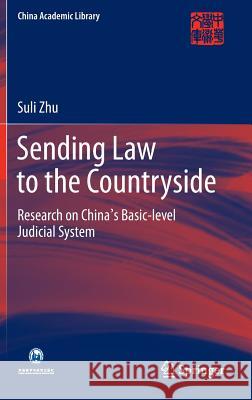Sending Law to the Countryside: Research on China's Basic-Level Judicial System » książka
topmenu
Sending Law to the Countryside: Research on China's Basic-Level Judicial System
ISBN-13: 9789811011412 / Angielski / Twarda / 2016 / 318 str.
Kategorie:
Kategorie BISAC:
Wydawca:
Springer
Seria wydawnicza:
Język:
Angielski
ISBN-13:
9789811011412
Rok wydania:
2016
Wydanie:
2016
Numer serii:
000458290
Ilość stron:
318
Waga:
0.68 kg
Wymiary:
23.39 x 15.6 x 2.06
Oprawa:
Twarda
Wolumenów:
01
Dodatkowe informacje:
Wydanie ilustrowane











